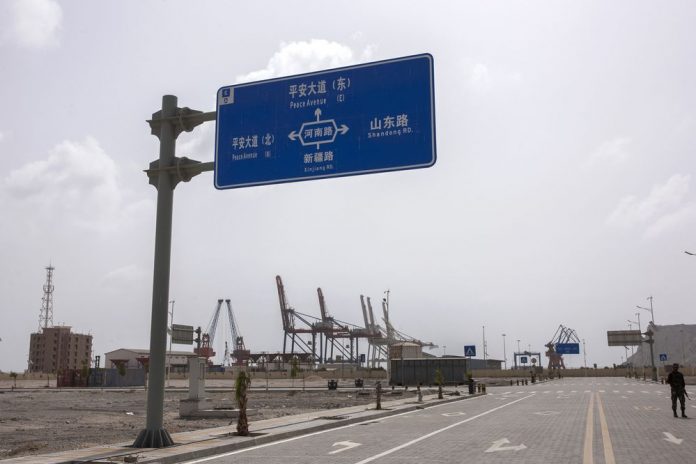So Khan may be tempted to turn instead to Beijing or even Saudi Arabia, despite having campaigned against corruption in Chinese-funded projects. China is reported to have recently agreed to write a $2 billion loan to ease his transition into the office, and the Saudi-backed Islamic Development Bank has arranged a $4.5 billion loan, with the proceeds mainly to be used to pay for Pakistan’s oil imports. Higher crude prices have also contributed to Pakistan’s problems.
It’s increasingly becoming the norm for defiant strongmen to seek alternatives to the US-led world order. Turkey’s President Recep Tayyip Erdogan has found a benefactor in Qatar, who promised to invest $15 billion in the country Thursday to avert a financial meltdown amid a spat with Washington.
So why shouldn’t Pakistan join in? After all, Beijing is used to supporting financial zombies. An average local government financing vehicle has a net-debt-to-Ebitda ratio of 27 times. If the borrower can’t pay, the lender just hands out more loans; that way, none of the debt shows up as bad on the creditor’s books, and both sides are happy.
There’s one problem: Whereas a default by an obscure subsidiary of a state-owned enterprise or a small town in Inner Mongolia could send shock waves through China’s entire corporate bond market, Pakistan is still a sovereign state (in the eyes of investors, if not its creditors in Beijing) so is far less likely to cause financial contagion.
The fragility of China’s domestic market encourages state lenders to be forgiving even as the country makes deleveraging a national economic priority. Pakistan doesn’t have that backstop.
In addition, lenders to Pakistan such as the China Development Bank aren’t traditional commercial banks. They don’t take household deposits or even follow Basel III standards. If a few loans go bad, the Ministry of Finance can just sweep the problems away, leaving China’s financial system intact.
From Beijing’s perspective, that means there’s little downside to rolling over a few bad debts, at least in the short term. But for Pakistan, the stakes are much higher.
The question ultimately comes down to whether China decides to forgive a soured loan, restructure it, or resolve it another way. According to Nomura Securities, of 31 heavily indebted poor countries, China has provided relief to 28, and even generously offered full debt forgiveness to several, such as Afghanistan and Burundi.
That’s not always how things pan out, though. Last year, Sri Lanka signed over a 99-year lease of its moribund Hambantota Port to China Merchants Group to help repay its debt.
Turkey’s crisis dragged emerging markets back into bear territory this week, a warning to Pakistan about what may lie ahead. The one lesson we may learn, as my Bloomberg Opinion colleague Noah Smith argues, is that debt-fueled growth can turn real ugly, real quickly.
So while China’s money may look easy right now, it comes with dangerous strings attached. An austerity program with the IMF would serve Pakistan better.






